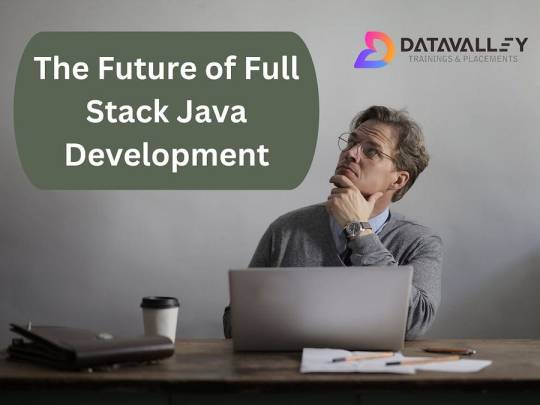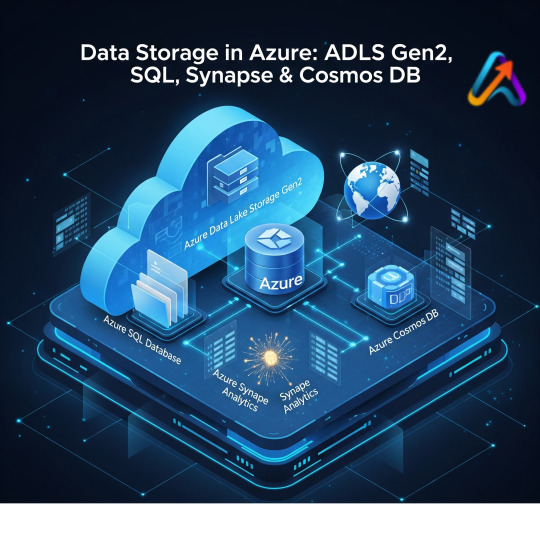#data engineer training
Explore tagged Tumblr posts
Text
AWS Data Engineer Training | AWS Data Engineer Online Course.
AccentFuture offers an expert-led online AWS Data Engineer training program designed to help you master data integration, analytics, and cloud solutions on Amazon Web Services (AWS). This comprehensive course covers essential topics such as data ingestion, storage solutions, ETL processes, real-time data processing, and data analytics using key AWS services like S3, Glue, Redshift, Kinesis, and more. The curriculum is structured into modules that include hands-on projects and real-world applications, ensuring practical experience in building and managing data pipelines on AWS. Whether you're a beginner or an IT professional aiming to enhance your cloud skills, this training provides the knowledge and expertise needed to excel in cloud data engineering.
For more information and to enroll, visit AccentFuture's official course page.
#aws data engineer online training#aws data engineer training#data engineering#data engineering course in hyderabad#data engineer training#data engineer online training
0 notes
Text
Azure Data Engineering Training in Hyderabad
Azure Data Engineering: Empowering the Future of Data Management
Azure Data Engineering is at the forefront of revolutionizing how organizations manage, store, and analyze data. Leveraging Microsoft Azure's robust cloud platform, data engineers can build scalable, secure, and high-performance data solutions. Azure offers a comprehensive suite of tools and services, including Azure Data Factory, Azure Synapse Analytics, Azure Databricks, and Azure Data Lake Storage, enabling seamless data integration, transformation, and analysis.

Key features of Azure Data Engineering include:
Scalability: Easily scale your data infrastructure to handle increasing data volumes and complex workloads.
Security: Benefit from advanced security features, including data encryption, access controls, and compliance certifications.
Integration: Integrate diverse data sources, whether on-premises or in the cloud, to create a unified data ecosystem.
Real-time Analytics: Perform real-time data processing and analytics to derive insights and make informed decisions promptly.
Cost Efficiency: Optimize costs with pay-as-you-go pricing and automated resource management.
Azure Data Engineering equips businesses with the tools needed to harness the power of their data, driving innovation and competitive advantage.
RS Trainings: Leading Data Engineering Training in Hyderabad
RS Trainings is renowned for providing the best Data Engineering Training in Hyderabad, led by industry IT experts. Our comprehensive training programs are designed to equip aspiring data engineers with the knowledge and skills required to excel in the field of data engineering, with a particular focus on Azure Data Engineering.
Why Choose RS Trainings?
Expert Instructors: Learn from seasoned industry professionals with extensive experience in data engineering and Azure.
Hands-on Learning: Gain practical experience through real-world projects and hands-on labs.
Comprehensive Curriculum: Covering all essential aspects of data engineering, including data integration, transformation, storage, and analytics.
Flexible Learning Options: Choose from online and classroom training modes to suit your schedule and learning preferences.
Career Support: Benefit from our career guidance and placement assistance to secure top roles in the industry.
Course Highlights
Introduction to Azure Data Engineering: Overview of Azure services and architecture for data engineering.
Data Integration and ETL: Master Azure Data Factory and other tools for data ingestion and transformation.
Big Data and Analytics: Dive into Azure Synapse Analytics, Databricks, and real-time data processing.
Data Storage Solutions: Learn about Azure Data Lake Storage, SQL Data Warehouse, and best practices for data storage and management.
Security and Compliance: Understand Azure's security features and compliance requirements to ensure data protection.
Join RS Trainings and transform your career in data engineering with our expert-led training programs. Gain the skills and confidence to become a proficient Azure Data Engineer and drive data-driven success for your organization.
#data engineer online training#data engineer training#data engineer training in hyderabad#data engineer training institute in hyderabad#data engineer training with placement#azure data engineering training in hyderabad#data engineering#azure data engineer online training
0 notes
Text
Unlocking the Power of Data Engineering
In the era of data-driven decision-making, businesses face the pressing need to efficiently manage and analyze vast amounts of data. This has led to the rise of data engineering, a field dedicated to transforming raw data into valuable insights. In this article, we will delve into the world of data engineering, exploring its key concepts, methodologies, and the impact it can have on organizations.
1. Understanding Data Engineering
Data engineering can be defined as the process of designing, building, and managing the infrastructure and systems that enable the collection, storage, processing, and analysis of data. It involves a combination of technical skills, domain knowledge, and creativity to bridge the gap between raw data and actionable insights.
2. The Role of Data Engineers
Data engineers play a crucial role in the data ecosystem. They are responsible for developing and maintaining data pipelines, which are the pathways through which data flows from various sources to storage and analysis platforms. Data engineers work closely with data scientists, analysts, and other stakeholders to ensure data quality, reliability, and accessibility. Enroll in Data Engineer Training Course to gain hands-on experience with cutting-edge tools and techniques, empowering you to excel in the dynamic world of data engineering.
3. Building Data Pipelines
Data pipelines are the backbone of any data engineering architecture. They enable the smooth and efficient movement of data from source systems to the desired destinations. Data engineers leverage various tools and technologies to build and manage these pipelines, including Extract, Transform, Load (ETL) processes, batch processing, streaming frameworks, and data integration platforms.
Refer this article: How much is the Data Engineer Course Fee in India?
4. Data Integration and Transformation
Data engineering involves integrating data from multiple sources, which may be structured or unstructured, into a unified format for analysis. This process often requires data transformation, where data engineers apply cleaning, filtering, aggregating, and enriching techniques to ensure data consistency and usability. Data engineers also address data quality issues, such as missing values, inconsistencies, and duplicates, to enhance the accuracy of downstream analyses. Join leading data engineer training institute to learn from experienced professionals and enhance your proficiency in handling big data and implementing scalable solutions.
5. Scalability and Performance
As data volumes continue to grow exponentially, data engineering must account for scalability and performance. Data engineers need to design systems that can handle large-scale data processing and storage efficiently. This may involve distributed computing frameworks like Apache Hadoop and Apache Spark, cloud-based storage solutions, and parallel processing techniques to optimize performance.
6. Data Governance and Security
Data engineering involves working with sensitive and valuable information. Therefore, ensuring data governance and security is paramount. Data engineers implement robust security measures, including data encryption, access controls, and data anonymization techniques, to protect sensitive data from unauthorized access or breaches. They also adhere to data privacy regulations, such as the General Data Protection Regulation (GDPR) or the California Consumer Privacy Act (CCPA). Data Engineer Courses provides hands-on experience with industry-relevant tools and methodologies, equipping you with the skills to design and manage data infrastructure effectively.
Data Scientist vs Data Engineer vs ML Engineer vs MLOps Engineer
youtube
7. Data Warehousing and Storage
Efficient data storage and management are critical components of data engineering. Data engineers leverage data warehousing solutions, both on-premises and cloud-based, to organize and store data for easy access and retrieval. They design data schemas and models, implement data partitioning strategies, and optimize storage configurations to meet performance requirements and minimize storage costs.
8. Data Engineering and Machine Learning
Data engineering and machine learning go hand in hand. Data engineers collaborate with data scientists to develop data pipelines that support machine learning workflows. They preprocess and prepare data, perform feature engineering, and optimize data ingestion processes to enable accurate model training and prediction. Data engineers also play a vital role in deploying machine learning models into production systems. Discover the best data engineer course tailored to meet industry demands, empowering you with advanced data engineering knowledge and problem-solving abilities for data-driven success.
9. Data Engineering in the Cloud
Cloud computing has revolutionized data engineering by providing scalable and flexible infrastructure. Cloud-based data platforms, such as Amazon Web Services (AWS), Google Cloud Platform (GCP), and Microsoft Azure, offer a wide range of services and tools for data engineering tasks. Data engineers leverage cloud technologies to build cost-effective and scalable data pipelines, storage solutions, and analytics platforms.
XGBOOST in Python
youtube
Conclusion
Data engineering is a vital discipline that enables organizations to leverage the power of data. With the right data engineering practices, businesses can unlock actionable insights, make informed decisions, and gain a competitive edge in today's data-driven landscape. Earn a Data Engineer Certification to validate your expertise in data modeling, data integration, and data architecture, enhancing your credibility in the data engineering domain.
By understanding the key concepts, methodologies, and tools of data engineering, organizations can harness the full potential of their data assets and drive innovation and growth.
Reinforcement Learning in Python with Simple Example
youtube
0 notes
Text
Bullshit engines.
I mean, I don’t suppose many people following this blog strongly disagree.
#they are not search engines#they are not the new improved version! they are something else!#they are probabilistic text generators#they produce something plausible based on the data set they were trained on#there is no knowledge or understanding involved
13 notes
·
View notes
Text
Learning C for work, and, even having learnt C++ syntax before, it is truly a humbling experience after having gotten so used to python over the past half year 💀
#coding#freshly trained data engineer (me) learns why we use python for data#bc we'd lose our minds if we tried doing it with lower level languages holy heck#oh yeah I started my new job this week!!! I work for tram now
2 notes
·
View notes
Text
Protecting Your AI Investment: Why Cooling Strategy Matters More Than Ever
New Post has been published on https://thedigitalinsider.com/protecting-your-ai-investment-why-cooling-strategy-matters-more-than-ever/
Protecting Your AI Investment: Why Cooling Strategy Matters More Than Ever


Data center operators are gambling millions on outdated cooling technology. The conversation around data center cooling isn’t just changing—it’s being completely redefined by the economics of AI. The stakes have never been higher.
The rapid advancement of AI has transformed data center economics in ways few predicted. When a single rack of AI servers costs around $3 million—as much as a luxury home—the risk calculation fundamentally changes. As Andreessen Horowitz co-founder Ben Horowitz recently cautioned, data centers financing these massive hardware investments “could get upside down very fast” if they don’t carefully manage their infrastructure strategy.
This new reality demands a fundamental rethinking of cooling approaches. While traditional metrics like PUE and operating costs are still important, they are secondary to protecting these multi-million-dollar hardware investments. The real question data center operators should be asking is: How do we best protect our AI infrastructure investment?
The Hidden Risks of Traditional Cooling
The industry’s historic reliance on single-phase, water-based cooling solutions carries increasingly unacceptable risks in the AI era. While it has served data centers well for years, the thermal demands of AI workloads have pushed this technology beyond its practical limits. The reason is simple physics: single-phase systems require higher flow rates to manage today’s thermal loads, increasing the risk of leaks and catastrophic failures.
This isn’t a hypothetical risk. A single water leak can instantly destroy millions in AI hardware—hardware that often has months-long replacement lead times in today’s supply-constrained market. The cost of even a single catastrophic failure can exceed a data center’s cooling infrastructure budget for an entire year. Yet many operators continue to rely on these systems, effectively gambling their AI investment on aging technology.
At Data Center World 2024, Dr. Mohammad Tradat, NVIDIA’s Manager of Data Center Mechanical Engineering, asked, “How long will single-phase cooling live? It’ll be phased out very soon…and then the need will be for two-phase, refrigerant-based cooling.” This isn’t just a growing opinion—it’s becoming an industry consensus backed by physics and financial reality.
A New Approach to Investment Protection
Two-phase cooling technology, which uses dielectric refrigerants instead of water, fundamentally changes this risk equation. The cost of implementing a two-phase cooling system—typically around $200,000 per rack—should be viewed as insurance for protecting a $5 million AI hardware investment. To put this in perspective, that’s a 4% premium to protect your asset—considerably lower than insurance rates for other multi-million dollar business investments. The business case becomes even clearer when you factor in the potential costs of AI training disruption and idle infrastructure during unplanned downtime.
For data center operators and financial stakeholders, the decision to invest in two-phase cooling should be evaluated through the lens of risk management and investment protection. The relevant metrics should include not just operating costs or energy efficiency but also the total value of hardware being protected, the cost of potential failure scenarios, the future-proofing value for next-generation hardware and the risk-adjusted return on cooling investment.
As AI continues to drive up the density and value of data center infrastructure, the industry must evolve its approach to cooling strategy. The question isn’t whether to move to two-phase cooling but when and how to transition while minimizing risk to existing operations and investments.
Smart operators are already making this shift, while others risk learning an expensive lesson. In an era where a single rack costs more than many data centers’ annual operating budgets, gambling on outdated cooling technology isn’t just risky – it’s potentially catastrophic. The time to act is now—before that risk becomes a reality.
#000#2024#Accelsius#aging#ai#AI Infrastructure#ai training#approach#budgets#Business#cooling#data#Data Center#Data Centers#disruption#Economics#efficiency#energy#energy efficiency#engineering#factor#financial#Fundamental#Future#gambling#Hardware#how#how to#Industry#Infrastructure
2 notes
·
View notes
Text
Who provides the best Informatica MDM training?
1. Introduction to Informatica MDM Training
Informatica MDM (Master Data Management) is a crucial aspect of data management for organizations dealing with large volumes of data. With the increasing demand for professionals skilled in Informatica MDM, the need for quality training has become paramount. Choosing the right training provider can significantly impact your learning experience and career prospects in this field.

2. Importance of Choosing the Right Training Provider
Selecting the best Informatica MDM training provider is essential for acquiring comprehensive knowledge, practical skills, and industry recognition. A reputable training provider ensures that you receive the necessary guidance and support to excel in your career.
3. Factors to Consider When Choosing Informatica MDM Training
Reputation and Experience
A reputable training provider should have a proven track record of delivering high-quality training and producing successful professionals in the field of Informatica MDM.
Course Curriculum
The course curriculum should cover all essential aspects of Informatica MDM, including data modeling, data integration, data governance, and data quality management.
Training Methodology
The training methodology should be interactive, engaging, and hands-on, allowing participants to gain practical experience through real-world scenarios and case studies.
Instructor Expertise
Experienced and certified instructors with extensive knowledge of Informatica MDM ensure effective learning and provide valuable insights into industry best practices.
Flexibility of Learning Options
Choose a training provider that offers flexible learning options such as online courses, instructor-led classes, self-paced learning modules, and blended learning approaches to accommodate your schedule and learning preferences.
4. Comparison of Training Providers
When comparing Informatica MDM training providers, consider factors such as cost, course duration, support services, and reviews from past participants. Choose a provider that offers the best value for your investment and aligns with your learning objectives and career goals.
5. Conclusion
Selecting the right Informatica MDM training provider is crucial for acquiring the necessary skills and knowledge to succeed in this competitive field. Evaluate different providers based on factors such as reputation, course curriculum, instructor expertise, and flexibility of learning options to make an informed decision.
Contact us 👇
📞Call Now: +91-9821931210 📧E Mail: [email protected] 🌐Visit Website: https://inventmodel.com/course/informatica-mdm-online-live-training
#informatica#software engineering#MDM Training#Informatica MDM Training#Data Management courses#MDM online course#online informatica training
3 notes
·
View notes
Text
Navigating the Data Landscape: A Deep Dive into ScholarNest's Corporate Training

In the ever-evolving realm of data, mastering the intricacies of data engineering and PySpark is paramount for professionals seeking a competitive edge. ScholarNest's Corporate Training offers an immersive experience, providing a deep dive into the dynamic world of data engineering and PySpark.
Unlocking Data Engineering Excellence
Embark on a journey to become a proficient data engineer with ScholarNest's specialized courses. Our Data Engineering Certification program is meticulously crafted to equip you with the skills needed to design, build, and maintain scalable data systems. From understanding data architecture to implementing robust solutions, our curriculum covers the entire spectrum of data engineering.
Pioneering PySpark Proficiency
Navigate the complexities of data processing with PySpark, a powerful Apache Spark library. ScholarNest's PySpark course, hailed as one of the best online, caters to both beginners and advanced learners. Explore the full potential of PySpark through hands-on projects, gaining practical insights that can be applied directly in real-world scenarios.
Azure Databricks Mastery
As part of our commitment to offering the best, our courses delve into Azure Databricks learning. Azure Databricks, seamlessly integrated with Azure services, is a pivotal tool in the modern data landscape. ScholarNest ensures that you not only understand its functionalities but also leverage it effectively to solve complex data challenges.
Tailored for Corporate Success
ScholarNest's Corporate Training goes beyond generic courses. We tailor our programs to meet the specific needs of corporate environments, ensuring that the skills acquired align with industry demands. Whether you are aiming for data engineering excellence or mastering PySpark, our courses provide a roadmap for success.
Why Choose ScholarNest?
Best PySpark Course Online: Our PySpark courses are recognized for their quality and depth.
Expert Instructors: Learn from industry professionals with hands-on experience.
Comprehensive Curriculum: Covering everything from fundamentals to advanced techniques.
Real-world Application: Practical projects and case studies for hands-on experience.
Flexibility: Choose courses that suit your level, from beginner to advanced.
Navigate the data landscape with confidence through ScholarNest's Corporate Training. Enrol now to embark on a learning journey that not only enhances your skills but also propels your career forward in the rapidly evolving field of data engineering and PySpark.
#data engineering#pyspark#databricks#azure data engineer training#apache spark#databricks cloud#big data#dataanalytics#data engineer#pyspark course#databricks course training#pyspark training
3 notes
·
View notes
Text
Data Engineering: Fueling Business Success through Strategic Data Management
In today's data-driven world, organizations are inundated with vast amounts of information generated from various sources. To extract meaningful insights and unleash the full potential of this data, businesses need efficient data management strategies. This is where data engineering comes into play. Data engineering encompasses a set of techniques, tools, and processes that enable organizations to collect, transform, and deliver structured and actionable data for analysis. In this article, we will delve deeper into the role of data engineering in driving business success.
Data Integration and Consolidation:
One of the primary responsibilities of data engineering is to integrate and consolidate data from disparate sources. Companies accumulate data from various systems, databases, and applications, which often reside in different formats and structures. Data engineers, through their expertise and knowledge gained from a data engineering course in bangalore, employ ETL (Extract, Transform, Load) processes to extract data from multiple sources, transform it into a unified format, and load it into a centralized data repository.. This consolidation allows organizations to have a single source of truth, providing a comprehensive view of their operations and customers.
Data Quality and Governance:
Data quality is crucial for accurate analysis and informed decision-making. Data engineers, equipped with their expertise gained from data engineer training in chennai, play a pivotal role in ensuring data quality by implementing data cleansing and validation processes.. They identify and rectify anomalies, inconsistencies, and errors within the data. Additionally, data engineers establish data governance frameworks, defining data standards, policies, and procedures to maintain data integrity, security, and compliance. Reliable and high-quality data empowers businesses to make well-informed decisions based on accurate insights.
Scalability and Performance:
As organizations collect and store increasingly large volumes of data, scalability becomes a critical aspect of data engineering. Data engineers, with their expertise gained from data engineer certification in hyderabad, design and implement scalable data architectures that can handle the growing demands of data processing and storage. By leveraging distributed computing frameworks like Apache Hadoop and Apache Spark, they can process and analyze massive datasets in parallel, enabling faster and more efficient data processing. This scalability ensures that businesses can handle the ever-increasing data volumes without compromising performance.
Data Transformation and Modeling:
Data engineering involves transforming raw data into a structured format suitable for analysis. Data engineers employ various techniques such as data normalization, aggregation, and denormalization to optimize data structures for efficient querying and analysis. They also create data models and schemas that enable business analysts and data scientists to extract valuable insights from the data. Effective data transformation and modeling, taught in data engineer institutes in pune, lay the foundation for accurate reporting, predictive analytics, and machine learning initiatives.
Data Pipeline Development:
Data engineering is responsible for building robust and reliable data pipelines. Data engineers, through their expertise gained from data engineer training courses, develop workflows that automate the movement and transformation of data from source systems to the data warehouse or data lake. These pipelines ensure the continuous flow of data, allowing organizations to have real-time or near-real-time access to critical information. By automating data ingestion and processing, businesses can reduce manual effort, minimize errors, and accelerate the time-to-insight.
Data Exploration and Visualization:
Data engineers work closely with data analysts and data scientists to provide them with the necessary data exploration and visualization tools. They develop data exploration platforms, dashboards, and visualizations that allow users to interactively explore and analyze data. These tools enable business users to gain insights quickly, identify patterns, and make data-driven decisions. By empowering users with self-service analytics capabilities, data engineers contribute to the democratization of data within organizations.
Refer this article: How much is the Data Engineer Course Fee in India?
Conclusion:
Data engineering plays a pivotal role in unlocking the value of data and driving business success. By integrating and consolidating data from disparate sources, ensuring data quality and governance, and building scalable data architectures, data engineers enable organizations to make informed decisions. They facilitate data transformation, develop robust data pipelines, and provide data exploration tools that empower users to gain actionable insights. As businesses continue to navigate the data-driven landscape, investing in data engineering capabilities will be essential for staying competitive and harnessing the full potential of their data assets.
Certified Data Engineer Course
youtube
#data engineer course#data engineer training#data engineer certification#data engineer course in bangalore#data engineer training in bangalore#Youtube
0 notes
Text

*laughs in still 923 characters in my data set after cleaning up all the duplicate names* 🙃 (down from 975 (unique) old names)
#ship stats#coding#I love csv files they're so satisfying to look at#I'm like THIS 🤏 close to visualising this first version aaaah#I've assigned and completed/corrected (as much as possible) the demographic data#(you need to understand the amount of wikis I had to manually look through for this cleaning process)#now turning everything into csv files again so I can LOOK AT EM BETTER#and then need to look into vis softwares to use o.o#we had bootcamp graduation today also!! 🎉 I am officially a trained data engineer#what will I do with my time now until I have hunted myself a job? hoPEFULLY FINALLY EDIT MY REMAINING MATRIARCHY VIDEOS Q.Q
3 notes
·
View notes
Text

Palantir Foundry Developer Training Program
Enhance your data engineering skills with the Palantir Foundry Developer Training Program. Learn to leverage Palantir’s powerful platform for building data solutions, managing complex workflows, and creating advanced data visualizations. This hands-on course is perfect for developers who want to dive into the world of big data and real-time analytics. Build your expertise and take your career to the next level by mastering Palantir Foundry. Start your journey today!
0 notes
Text
The Future of Full Stack Java Development

Full-stack developers, also known as “jack of all trades,” are in high demand in India. They are capable of carrying out the duties of numerous professionals. They earn good money and have many job opportunities with rewarding experiences because of their diverse skills. Full-stack Java programming has a bright future because its popularity is growing and will continue to grow in the coming years.
It’s well known that full-stack developers are proficient in both server-side and client-side programming. They are the professionals who carry out the responsibilities of backend and frontend developers. Despite not always being regarded as specialists, their abilities enable them to handle development tasks with ease. All firms look forward to having a brilliant full-stack developer as a future developer for a number of reasons. They handle a variety of technologies, which enables them to manage more project facets than the typical coder.
An experienced web developer who primarily works with Java programming is known as a Java full-stack developer. The front end, back end, and database layer are the three levels of code that these web developers build. The web development teams are frequently led by full-stack Java engineers, who also assist in updating and designing new websites. Because there is a great demand for Java full-stack developers. Many institutions have seized the opportunity by providing well-thought-out Java full-stack developer courses. You may study full-stack development quickly and become an expert in the area with the aid of these courses.
Java Full Stack Development by Datavalley
100% Placement Assistance
Duration: 3 Months (500+ hours)
Mode: Online/Offline
Let’s look into the future opportunities for full-stack Java professionals in India.
4 things that will Expand the Future Purpose of Java Full-Stack Developers
The Role of a Full-Stack Developer
Full-stack developers work on numerous tasks at once. They need to be extremely talented and knowledgeable in both front-end and back-end programming languages for this. JavaScript, CSS, HTML, and other frontend programming languages are essential. When creating new websites or modifying old ones, Java is a key programming language used by Java full-stack developers. However, backend programming languages consist of .Net, PHP, and Python depending on the projects. The full stack developers are distinguished from other developers by their proficiency and understanding of programming languages. With the availability of the finest Java full stack developer training, students may now easily master a frontend programming language like Java. The full-stack developer is more valuable and in demand when they are knowledgeable in multiple programming languages.
Responsibilities of a Full-Stack Developer
Functional databases are developed by full-stack developers. It creates aesthetically pleasing frontend designs that improve user experience and support the backend. The entire web-to-web architecture is under the control of these full-stack developers. They are also in charge of consistently maintaining and updating the software as needed. The full-stack developers bear the responsibility of overseeing a software project from its inception to its finalized product.
In the end, these full-stack developers also satisfy client and technical needs. Therefore, having a single, adaptable person do many tasks puts them in high demand and increases their potential for success in the technology field. Through extensively developed modules that expand their future scope, the Java full-stack developer course equips students with the skills necessary to take on these tasks.
The full-stack developer salary range
Full-stack developers are among the highest-paid workers in the software industry. In India, the average salary for a full-stack developer is 9.5 lakhs per annum. The elements that determine income typically include experience, location of the position, company strength, and other considerations. A highly skilled and adaptable full-stack developer makes between 16 and 20 lakhs per annum. Full-stack engineers get paid a lot because of their extensive skills, they can handle the tasks of two or three other developers at once.
By fostering the growth of small teams, preventing misunderstandings, and cutting the brand’s operating expenses, these full-stack developers perform remarkable work. Students who take the Java full-stack developer course are better equipped to become versatile full-stack developers, which will increase their demand currently as well as in the future in the industry.
Job Opportunities of Java Full Stack Developers
The full-stack developers are knowledgeable professionals with a wide range of technological skills. These competent workers are conversant with numerous stacks, including MEAN and LAMP, and are capable of handling more tasks than a typical developer. They are skilled experts with a wealth of opportunities due to their extensive understanding of several programming languages.
Full-stack developers are in high demand because they can work on a variety of projects and meet the needs of many companies. The full-stack Java developer course helps students build this adaptability so they can eventually become the first choice for brands searching for high-end developers.
As a result, these are a few key factors improving the future prospects of Java Full Stack developers in India. They are vibrant professionals who are in high demand due to their diverse skill set and experience, and they are growing steadily. The Java full stack developer course can help students hone their knowledge and abilities to succeed in this industry.
Datavalley’s Full Stack Java Developer course can help you start a promising career in full stack development. Enroll today to gain the expertise and knowledge you need to succeed.
Attend Free Bootcamps
Looking to supercharge your Java skills and become a full-stack Java developer? Look no further than Datavalley’s Java Full Stack Developer bootcamp. This is your chance to take your career to the next level by enhancing your expertise.
Key points about Bootcamps:
It is completely free, and there is no obligation to complete the entire course.
20 hours total, two hours daily for two weeks.
Gain hands-on experience with tools and projects.
Explore and decide if the field or career is right for you.
Complete a mini-project.
Earn a certificate to show on your profile.
No commitment is required after bootcamp.
Take another bootcamp if you are unsure about your track.

#dataexperts#datavalley#data engineering#data analytics#dataexcellence#business intelligence#data science#power bi#data analytics course#data science course#java developers#java full stack bootcamp#java full stack training#java full stack course#java full stack developer
2 notes
·
View notes
Text
Big Data, Big Opportunities: A Beginner's Guide
Big Data is a current trend and the number of specialists in the field of Big Data is growing rapidly. If you are a beginner looking to enter the world of Big Data, you've come to the right place! This Beginner’s Guide will help you understand the basics of Big Data, Data Science, Data Analysis, and Data Engineering, and highlight the skills you need to build a career in this field.
What is Big Data?
Big Data refers to the massive volumes of structured and unstructured data that are too complex for traditional processing software. These Big Data concepts form the foundation for data professionals to extract valuable insights.
While the term might sound intimidating, think of Big Data as just a collection of data that's too large to be processed by conventional databases. Imagine the millions of transactions happening on Amazon or the vast amounts of data produced by a single flight from an airline. These are examples of Big Data in action. Learning the fundamentals will help you understand the potential of this massive resource
Why Big Data Matters
Big Data enables companies to uncover trends, improve decision-making, and gain a competitive edge. This demand has created a wealth of opportunities in Data Science careers, Data Analysis, and Data Engineering.
Key Big Data Concepts
Some key Big Data concepts include:
Volume, Velocity, and Variety: Large volume of data, generated rapidly in various formats.
Structured vs. Unstructured Data: Organized data in databases versus raw, unstructured data.
Tools like Hadoop and Spark are crucial in handling Big Data efficiently.
Data Engineering: The Backbone of Big Data
Data Engineering is the infrastructure behind Big Data. Data Engineering basics involve creating pipelines and processing systems to store and manage massive datasets. Learning these fundamentals is critical for those aspiring to Data Engineering jobs.
Big Data Applications Across Industries
Big Data applications span across industries, from healthcare and finance to marketing and manufacturing. In healthcare, Big Data is used for predictive analytics and improving patient care. In finance, it helps detect fraud, optimize investment strategies, and manage risks. Marketing teams use Big Data to understand customer preferences, personalize experiences, and create targeted campaigns. The possibilities are endless, making Big Data one of the most exciting fields to be a part of today.
As a beginner, you might wonder how Big Data fits into everyday life. Think of online streaming services like Netflix, which recommend shows based on your previous viewing patterns, or retailers who send personalized offers based on your shopping habits. These are just a couple of ways Big Data is being applied in the real world.
Building a Career in Big Data
The demand for Big Data professionals is on the rise, and there are a variety of career paths you can choose from:
Data Science Career: As a Data Scientist, you'll focus on predictive modeling, machine learning, and advanced analytics. This career often involves a strong background in mathematics, statistics, and coding.
Data Analysis Jobs: As a Data Analyst, you’ll extract meaningful insights from data to support business decisions. This role emphasizes skills in statistics, communication, and data visualization.
Data Engineering Jobs: As a Data Engineer, you’ll build the infrastructure that supports data processing and analysis, working closely with Data Scientists and Analysts to ensure that data is clean and ready for use.
Whether you're interested in Data Science, Data Analysis, or Data Engineering, now is the perfect time to jumpstart your career. Each role has its own unique challenges and rewards, so finding the right fit will depend on your strengths and interests.
Career Opportunities in Big Data and Their Salaries
As the importance of Big Data continues to grow, so does the demand for professionals skilled in handling large data sets. Let’s check the different career paths in Big Data, their responsibilities, and average salaries:
Data Scientist
Role: Data Scientists develop models and algorithms to extract insights from large data sets. They work on predictive analytics, machine learning, and statistical modeling.
Average Salary: $120,000 to $150,000 per year in the U.S.
Skills Needed: Strong background in math, statistics, programming (Python, R), and machine learning.
Data Analyst
Role: Data Analysts interpret data to provide actionable insights for decision-making. They focus on generating reports, dashboards, and business insights.
Average Salary: $60,000 to $90,000 per year in the U.S.
Skills Needed: Proficiency in SQL, Excel, Python, data visualization tools like Tableau or Power BI, and statistical analysis.
Data Engineer
Role: Data Engineers build and maintain the architecture (databases, pipelines, etc.) necessary for data collection, storage, and analysis.
Average Salary: $100,000 to $140,000 per year in the U.S.
Skills Needed: Knowledge of cloud platforms (AWS, Google Cloud), database management, ETL tools, and programming languages like Python, Scala, or Java.
Big Data Architect
Role: Big Data Architects design the infrastructure that supports Big Data solutions, ensuring scalability and performance.
Average Salary: $140,000 to $180,000 per year in the U.S.
Skills Needed: Expertise in cloud computing, distributed systems, database architecture, and technologies like Hadoop, Spark, and Kafka.
Machine Learning Engineer
Role: Machine Learning Engineers create algorithms that allow systems to automatically improve from experience, which is key in processing and analyzing large data sets.
Average Salary: $110,000 to $160,000 per year in the U.S.
Skills Needed: Proficiency in machine learning libraries (TensorFlow, PyTorch), programming (Python, R), and experience with large datasets.
Learn Big Data with Guruface
Guruface, an online learning platform, offers different Big Data courses. Whether you’re looking for an Introduction to Big Data, a Data Science tutorial, or Data Engineering basics, Guruface provides beginner-friendly resources to guide your learning. Their courses are ideal for those looking to learn Big Data concepts and practical applications in Data Science, Data Analysis, and Data Engineering.
Conclusion
With data being the driving force in today’s society, understanding the Big Data concepts, tools as well as applications, is a key step towards an exciting Big Data Career. Platforms like Guruface provide the ideal starting point for beginners interested in Big Data, Data Science, Data Analysis, or Data Engineering. Start your journey today and explore the vast potential of Big Data.
0 notes
Text

Azure Data Engineer Online Training | Azure Data Engineer Online Course
Master Azure Data Engineering with AccentFuture. Get hands-on training in data pipelines, ETL, and analytics on Azure. Learn online at your pace with real-world projects and expert guidance.
🚀 Enroll Now: https://www.accentfuture.com/enquiry-form/
📞 Call Us: +91–9640001789
📧 Email Us: [email protected]
🌐 Visit Us: AccentFuture
#Azure data engineer course#Azure data engineer course online#Azure data engineer online training#Azure data engineer training
0 notes
Text

Fastest Growing IT Roles in India 2025 Edition
Step into the most in-demand tech careers of 2025 with Evision Technoserve! Explore top career paths such as Cloud Administrator, Cybersecurity Analyst, AI & Data Science Engineer, Full Stack Developer, and DevOps Engineer. Gain real-world experience through hands-on projects and learn directly from industry mentors. Evision’s expert-led training programs are designed to fast-track your IT career with 100% placement assistance. Don’t miss out on exciting internship and job opportunities
#fastest growing tech careers 2025 india evision#trending IT jobs for freshers india 2025#future-proof IT careers for students 2025#high demand IT roles with placement india#cloud administrator training with jobs 2025#cybersecurity analyst course with internship#ai & data science engineer course india freshers#devops engineer training with placement india#evisiontechnoserve#internshipprogram
0 notes